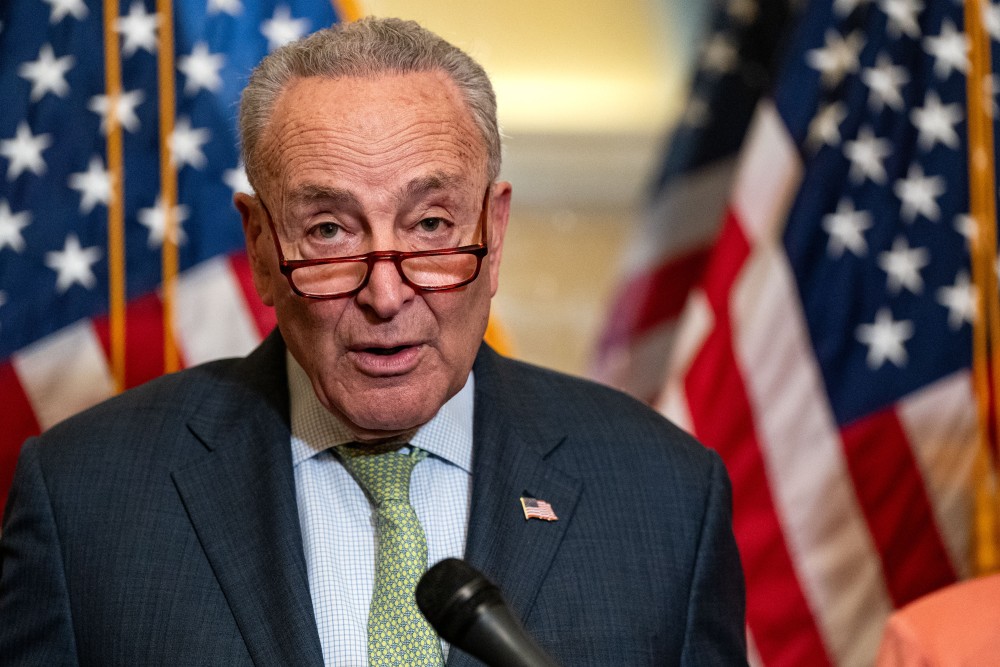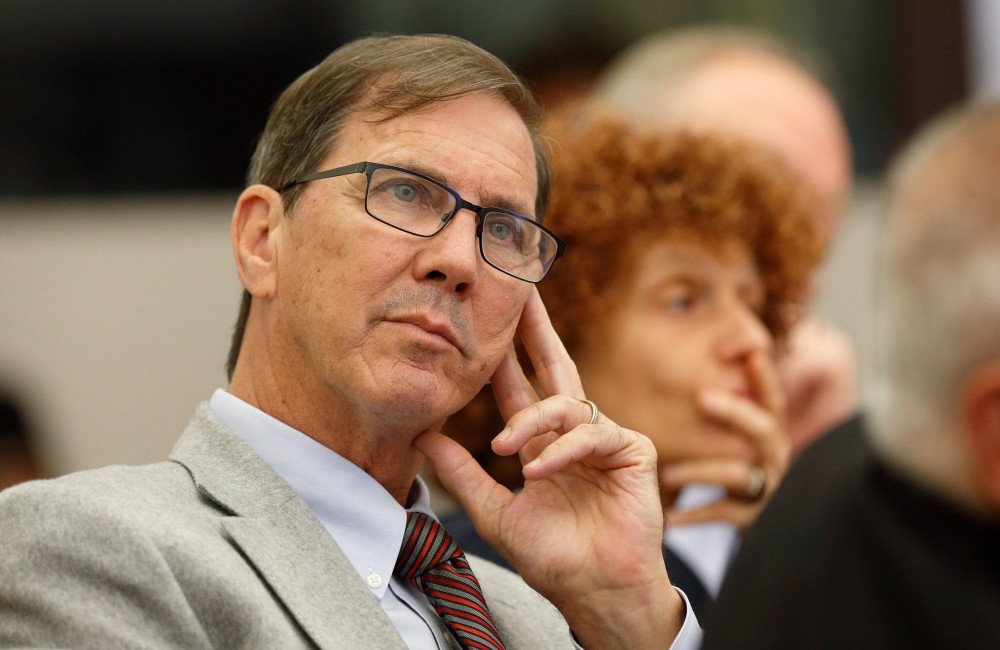
PROSPECT HEIGHTS — With bipartisan immigration legislation again unable to garner enough support in the Senate to pass last week, the head of the U.S. Bishops’ Conference Migration and Refugee Services said he doesn’t expect immigration reform before the presidential election this November.
“As we’re running up to this election, we don’t expect that any concerted or results-oriented immigration bills will come forward,” William Canny, the executive director of the Migration and Refugee Services of the USCCB told The Tablet.
“What we do hope is that those who are willing to discuss and negotiate continue to do that regardless of whether it’s an election year or not,” Canny said.
Former President Donald Trump, the presumptive Republican presidential nominee, has made the crisis at the southern border a centerpiece of his re-election campaign, and has encouraged GOP lawmakers not to support any border legislation deal with Democrats that wasn’t perfect.
President Joe Biden, meanwhile, has touted his own proposal as the toughest “border enforcement in history.” The legislation, which mirrors border legislation that was rejected in February when it was attached to a foreign aid package to Ukraine, Israel and Taiwan, failed in a 43-50 vote in late May.
60 votes were needed for the legislation to proceed.
Among other things, Canny said the new bill, like the previous one, would mandate rushed proceedings for people seeking protection and not give people due process to asylum. The bill would have also heightened the credible fear standard for migrants, and essentially shut down the border by virtually expelling without due process anyone who didn’t cross into the United States at a designated border point, which Canny said the committee also doesn’t support.
The bill also would have given the president power to shut down the border if certain migration thresholds are met.

“We were essentially against this bill, as we were the immigration aspects of the previous bill,” Canny said. “[Aspects of this bill] were definitely against the teachings of the Church, and while we respect a country’s sovereign right to control its borders, it needs to be done in the context of the common good and it needs to be humanitarianly fair.”
Canny noted, however, that the committee welcomes the bipartisan effort that went into the bill. The legislation was negotiated by Republican Sen. James Lankford of Oklahoma, Democratic Sen. Chris Murphy of Connecticut, and Independent Sen. Krysten Sinema of Arizona.
In a May 23 statement, Biden took aim at Congressional Republicans for the bill’s failure, saying they “do not care about securing the border or fixing America’s broken immigration system.”
Biden said the legislation would have hired more border patrol agents and asylum officers to process cases faster, implement new technology to stop fentanyl from entering the United States, provide resources to go after drug traffickers, expand access to lawful immigration pathways, and expedite work authorization to those who are eligible.
“Congressional Republicans do not care about securing the border or fixing America’s broken immigration system,” Biden said. “If they did, they would have voted for the toughest border enforcement in history. Instead, today, they put partisan politics ahead of our country’s national security.”
Republican House Speaker Mike Johnson of Louisiana said in a May 23 statement that Congress should instead adopt the GOP’s partisan, stricter, immigration legislation proposal.
“After more than three years of claiming the situation at our southern border was not a crisis while millions of illegals poured in, Congressional Democrats are attempting to throw an election year Hail Mary to cover for their embrace of President Biden’s open border policies,” Johnson said.
Through the political stalemate, Canny said the USCCB will continue to work to educate Catholics and others on the plight of migrants who come to the United States, and the nation’s current immigration laws and what aspects of them need to change.
Canny said the committee is also focused on its work resettling refugees coming to the United States from other countries — who have been vetted, and are joining American communities with an eventual path to citizenship — across the country in conjunction with other agencies, and the government.
Further, Canny added that the committee is continuing its advocacy to and conversations with Congress on root causes and creating programs to aid those countries people predominantly migrate from that respect a person’s and families right to stay home.
“People should be able to stay in their homes. We know people want to stay. They don’t want to leave,” Canny explained. “So, we are looking at those situations and are talking to leadership in our government and the administration and Congress about programs that could help folks stay in their countries and not feel forced to migrate.
